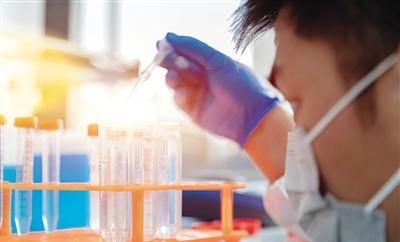
Some enterprises have applied to the National Food Safety Risk Assessment Center to expand the maximum dosage of propylene glycol from 1.5g/kg to 20g/kg, which experts believe is not necessary
The National Food Safety Risk Assessment Center recently solicited opinions on a company's application to increase the maximum use of propylene glycol in raw wet noodle products, which caused some experts to question.
Xie Huamin, a senior engineer of the standard quality center of the former State Grain Administration, submitted an opinion, arguing that the expansion of the dosage of propylene glycol violated the basic principle of "reducing the amount of use of food additives as much as possible" and lacked "comprehensive social effect evaluation". Some experts also pointed out that enterprises should reduce the use of food additives as much as possible when they can use other physical processes to achieve the same effect.
Businesses apply to increase usage
On June 7, the National Food Safety Risk Assessment Center issued an administrative license for comments, saying that a company, out of the consideration of process necessity, "applied for the maximum use of propylene glycol in raw wet noodle products from 1.5g/kg to 20g/kg".
According to the current national standards, propylene glycol as a food additive is allowed to be used in raw wet noodle products such as noodles and dumpling skins, with a maximum use of 1.5g/kg and a maximum use of 3.0g/kg in pastries, and its functions are stabilizers, coagulants, moisture retention agents, etc. The FDA of the U.S. Food and Drug Administration believes that when the intake of propylene glycol reaches or approaches a lethal amount (more than 6 g/kg body weight), it has been found in some experiments that it may cause kidney damage in animals. For the human body, if used within a limited range, it is generally considered safe.
On July 6, a staff member of the National Food Safety Risk Assessment Center revealed to the Beijing News reporter that the opinion is currently in the final stage, and the follow-up will organize expert review. For the applicant enterprise, the staff member said that it was inconvenient to disclose.
In fact, as early as 2013, some companies applied to expand the maximum use of propylene glycol to 20g/kg, and confirmed the necessity with experiments. According to Zhu Yi, associate professor of the College of Food Science and Nutritional Engineering of China Agricultural University, at that time, the company put forward this appeal mainly to meet the needs of the industrialization of staple foods, believing that the use standard of propylene glycol 1.5g/kg was not enough to ensure the shelf life of the product, so it needed to be expanded to 20g/kg, but the application was not approved by the relevant departments.
Zhu Yi believes that "at present, the maximum use of propylene glycol in domestic raw wet noodle products is 1.5g/kg, which should be at a medium level in the world." "At present, the European Union stipulates that the maximum content of propylene glycol in food is 3g/kg, and the maximum content of beverages and non-cream liqueurs is 1g/kg; the Japan Food Chemistry Research Foundation stipulates that the maximum amount of propylene glycol added to raw wet noodles is 2.0%.
Experts recommend limiting or even banning propylene glycol
During the solicitation of opinions, Xie Huamin, a senior engineer of the Standard and Quality Center of the State Grain Administration, raised objections and submitted them to the National Food Safety Risk Assessment Center on July 4.
Xie Huamin believes that the expansion of the use of propylene glycol violates the basic principle of the "Standard for the Use of Food Additives" of "reducing the amount of use as much as possible", and does not have "technical necessity". Raw and wet noodle products, especially wet noodles, are the main food of the people, and the importance of safety is not comparable to that of ordinary foods, so it is recommended to completely reject the attempt to increase the use of propylene glycol, and consider completely banning propylene glycol.
Xie Huamin also explained to the Beijing News reporter that the current technical assessment is to assess the technical necessity and safety of using the additive, but the "comprehensive social effect evaluation" is completely missing, and the phenomenon of abuse is ignored.
Zhu Yi also believes that "increasing the use of propylene glycol is the lowest cost", which is why enterprises want to modify the standard. However, if enterprises can take other physical methods to achieve the same moisturizing effect, such as vacuum and noodles, improve packaging, etc., they should reduce the use of food additives as much as possible. Once the maximum usage is approved, some companies may add to this limit value, which is not good for consumers.
In recent years, there have also been domestic enterprises that have been investigated and punished for using propylene glycol in excess of the standard. In September 2013, the Qingdao Municipal Food Safety Office reported that Ichicho ramen, Ichicho fresh cut noodles, chicken bone broth ramen, Beijing fried sauce noodles, and Ichicho pork bone broth ramen produced by Weihai Ichicho Food Co., Ltd. each exceeded the standard with 1 batch of propylene glycol exceeding the standard, exceeding the prescribed limit by 4-6 times, and all the problematic products were removed from the shelves.
Beijing News reporter Xia Dan